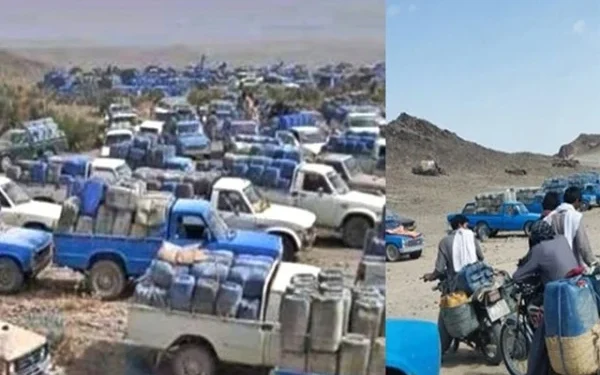Islamabad – A recent independent study has unveiled alarming statistics highlighting the massive financial blow that smuggling inflicts on Pakistan’s economy. According to a detailed report released by the Policy Research Institute of Market Economy (PRIME), the country is losing approximately Rs 340 billion annually due to smuggling and illicit trade activities. These losses not only deprive the national exchequer of vital revenue but also disrupt legitimate businesses across various sectors.
Smuggling: A National Economic Threat
The report presents a grim picture of how deeply entrenched smuggling and illegal trade have become in Pakistan’s economic framework. The Rs 340 billion loss represents 26% of the country’s gross national product (GNP), underscoring the severity of the problem. This translates into massive tax evasion that could otherwise be used to fund public services, infrastructure, and social welfare programs.
Afghan Transit Trade Misuse: A Major Contributor
One of the most significant contributors to smuggling-related losses is the misuse of the Afghan transit trade corridor, accounting for 30% of the total loss. The Afghan transit trade, which allows goods to pass through Pakistan en route to Afghanistan without duties, has been repeatedly exploited. Goods that are supposed to reach Afghanistan are often illegally diverted back into Pakistan, evading taxes and duties in the process.
To address this, the Pakistani government has relaxed certain conditions on goods imported under the Afghan transit corridor, backed by insurance guarantees. This move, implemented in an attempt to regulate the system more effectively, aims to track the movement of goods and prevent diversion.
Tobacco Smuggling and Tax Losses
Tobacco smuggling is another key area identified in the report. Despite the federal government increasing the excise duty on tobacco products by 150% in February, smuggling has only intensified. The availability of illegal cigarettes in the Pakistani market has surged from 30% to 56%, highlighting the ineffectiveness of taxation as a standalone deterrent.
The report states that Pakistan suffers an annual revenue loss of Rs 300 billion due to tobacco smuggling. This is a significant shortfall for a government already struggling to increase tax revenues amid a fragile economic situation.
Smuggling of Petroleum Products: A Growing Crisis
Petrol smuggling, primarily from Iran, is another area draining Pakistan’s economy. According to the report, an estimated 2.8 billion liters of petrol are smuggled annually, resulting in a loss of Rs 270 billion in revenue.
The primary driver of this illicit trade is the disparity in petrol prices between Pakistan and Iran. With Rs 16 per liter in customs duty and Rs 78 per liter in petroleum development levy, Pakistani petrol is significantly more expensive, incentivizing the illegal influx from across the border.
Counterfeit and Smuggled Goods Worsen Economic Losses
Smuggling isn’t limited to tobacco and petroleum; it extends to a variety of other sectors, causing multi-billion rupee losses each year. Notably:
- Counterfeit and substandard medicines account for Rs 65 billion in lost revenue. Approximately 40% of the medicines circulating in the Pakistani market are believed to be either fake or of inferior quality.
- Smuggled tires represent another massive leakage, with 60% of the vehicle tires in the market being illegally brought into the country. This results in an annual loss of Rs 106 billion.
- The tea sector is also affected, with 30% of tea being smuggled, leading to an estimated loss of Rs 10 billion each year.
Expansion of the Informal and Unregistered Economy
The study further notes that the unregistered or informal economy has grown significantly in Pakistan. Many businesses prefer operating outside the regulatory framework due to high taxes, complex tariffs, and inflationary pressures.
As a result, the informal sector is estimated to account for 40% of Pakistan’s GNP, posing a long-term challenge to economic documentation and transparency. The unchecked growth of this sector undermines legitimate businesses, reduces tax collection, and distorts economic data.
Global Illicit Trade Index: Pakistan Ranks 101st
Pakistan’s poor performance in curbing illicit trade is reflected in its position on the Illicit Trade Index, where it ranks 101st out of 158 countries. This low ranking points to weak governance, ineffective law enforcement, and flawed economic policies that fail to tackle the smuggling epidemic.
The country’s vulnerable borders, bureaucratic inefficiencies, and limited inter-agency coordination are frequently cited as key factors behind the inability to enforce anti-smuggling measures effectively.
Impact on Domestic Industry and Employment
Beyond revenue losses, smuggling also negatively impacts domestic industries, creating unfair competition for local manufacturers who are burdened with regulatory compliance and tax obligations. Illicit trade undercuts their prices, forcing some legitimate businesses to downsize or shut down, resulting in job losses and reduced industrial output.
This creates a vicious cycle where fewer formal jobs push more individuals into informal or illegal sectors, perpetuating the problem.
Government Response and Policy Recommendations
In response to the findings of the PRIME report, policymakers are being urged to take comprehensive action to curb smuggling. Key recommendations include:
- Digitizing customs and border systems to track goods in real-time.
- Enhancing surveillance along porous borders, particularly with Iran and Afghanistan.
- Implementing stricter penalties for those involved in smuggling.
- Simplifying tariffs and tax structures to make formal trade more attractive.
- Increasing coordination among the Federal Board of Revenue (FBR), customs, law enforcement agencies, and provincial governments.
Furthermore, the government is encouraged to launch awareness campaigns to educate the public about the economic and social harms of purchasing smuggled goods.
Conclusion: A Call for Urgent Action
The findings from the PRIME report make it clear that smuggling is not just a law enforcement issue but a major economic challenge that Pakistan must confront urgently. The estimated Rs 340 billion in annual losses due to illicit trade represents a significant portion of the national budget that could otherwise be used for development, healthcare, and education.
Addressing this challenge requires a multi-pronged approach involving policy reform, technological advancement, and strong political will. Without decisive action, smuggling will continue to undermine Pakistan’s economic stability and compromise its future growth.

























